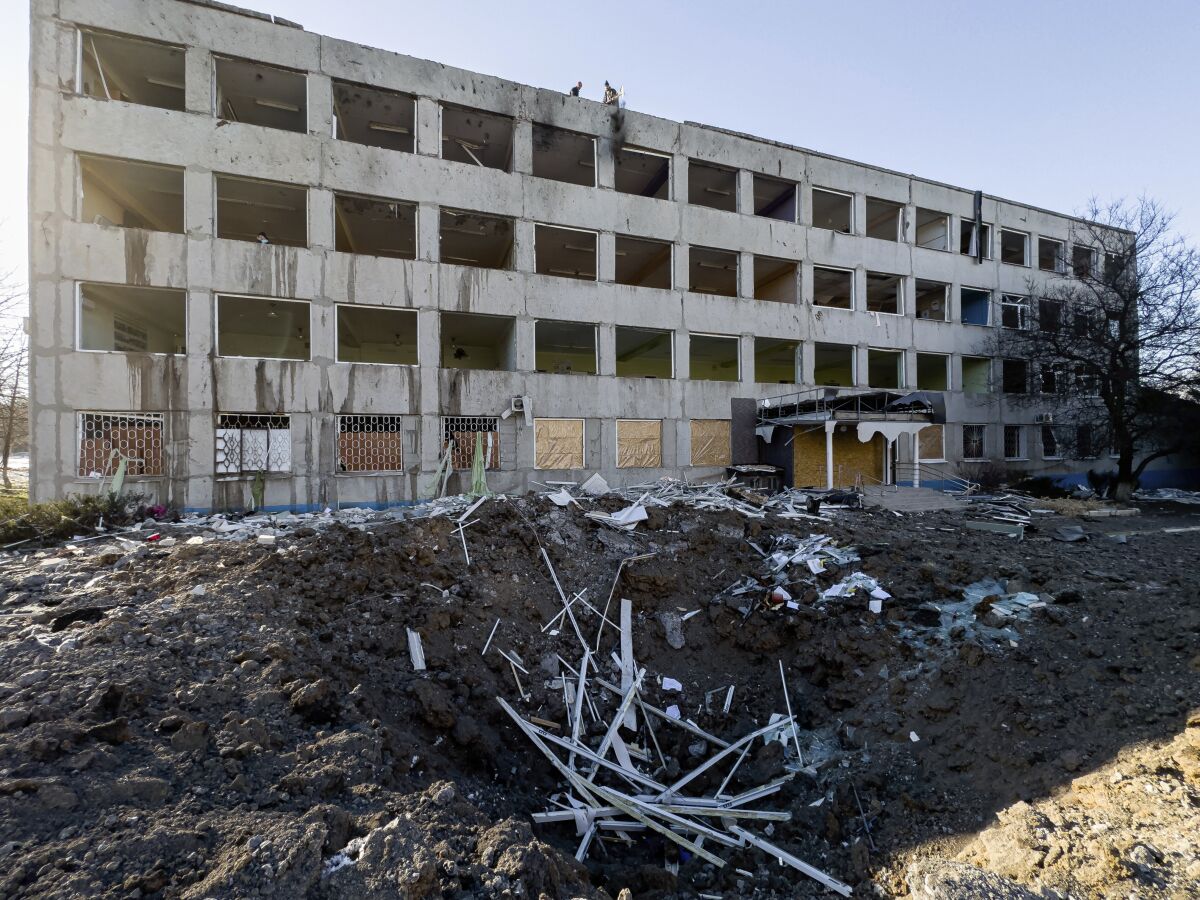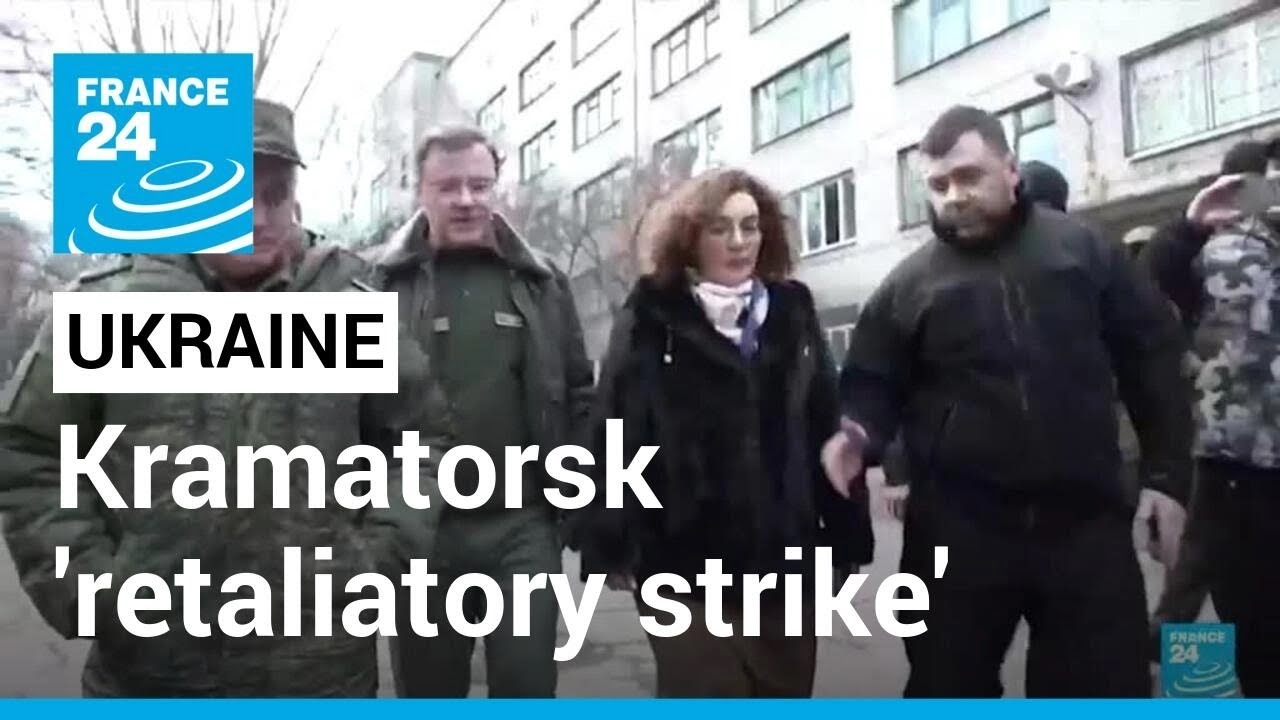Kyiv Denies Russian Claim Of Hundreds Of Ukrainian Soldiers Killed In Kramatorsk Attack
Kyiv denies Russian claim of hundreds of Ukrainian soldiers killed in Kramatorsk attack. Moscow's claim that a significant number of Ukraine's soldiers were killed in an attack launched by Russia the previous week in Kramatorsk, in eastern Ukraine, was refuted by Ukrainian officials on Sunday.
Author:Suleman ShahReviewer:Han JuJan 10, 2023122 Shares1.6K Views

Kyiv denies Russian claimof hundreds of Ukrainian soldiers killed in Kramatorsk attack. Moscow's claim that a significant number of Ukraine's soldiers were killed in an attack launched by Russia the previous week in Kramatorsk, in eastern Ukraine, was refuted by Ukrainian officials on Sunday.
The Russian Claim
In response to the assertion made by the Russian military, a spokesman for the Eastern Group of the Ukrainian Armed Forces named Serhii Cherevatyi told the news:
“„This is nonsense.- Serhii Cherevatyi
There are no signs of widespread casualties in the area, according to a CNN team that is currently on the ground there. According to the findings of the team, Kramatorsk and the surrounding area, including the area around the city morgue, do not display any signs of unusual activity.
In addition, a reporter for Reuters based in Kramtorsk stated that there were no significant signs of a Russian strike on two college dormitories. According to Russia, these dormitories had been housing hundreds of Ukrainian soldiers.
Reuters stated that:
“„There were no obvious signs that soldiers had been living there and no sign of bodies or traces of blood.- Reuters
According to Reuters, the mayor of Kramatorsk stated that there had been no reports of casualties.
See video report.

Kramatorsk 'retaliatory strike': Russia claims deadly attack, Kyiv denies anyone killed
According to a statement released by the Russian Defense Ministry, Russia previously asserted that a Russian strike in Kramatorsk that was carried out in "retaliation" for a Ukrainian attack on Russian-occupied Makiivka last week resulted in the deaths of more than 600 Ukrainian soldiers.
This claim was made in response to the attack that Ukraine conducted on Russian-occupied Makiivka. According to both Ukrainian and pro-Russian accounts, the strike in Makiivka took place shortly after midnight on New Year's Day.
The target of the attack was a vocational school in Makiivka, which is located in the Donetsk region. The school was housing Russian conscripts.
At least 89 Russian soldiers were killed, which is an unusually high death toll admission coming from the Russian government. Even higher death tolls were reported by the Ukrainian military, which at first stated that as many as 400 Russian soldiers had been taken out of action. News outlets are unable to independently verify the number of fatalities reported by either side. In either scenario, the strike represented one of the bloodiest moments for Moscow's forces throughout the entirety of the conflict.
After Moscow seemed to blame its own soldiers' use of cell phones, some pro-Kremlin leaders and military experts engaged in a rare public game of blame with the Russian government in the aftermath of the strike. This was a rare instance of a public game of blame being played.
The Russian Invasion
Russia invaded Ukraine on February 24, 2022, in a major escalation of the Russo-Ukrainian War, which began in 2014. Tens of thousands of people have died on both sides of the conflict. It has resulted in Europe's largest refugee crisis since WWII.
By late May, approximately 8 million Ukrainians had been displaced within their country, and more than 7.9 million had fled by 3 January 2023; within five weeks of the invasion, Russia experienced its greatest emigration since the October Revolution in 1917.
Many groups and nations have condemned the invasion. The United Nations General Assembly passed a resolution condemning the invasion and demanding that Russian forces withdraw completely. The International Court of Justice ordered Russia to halt military operations, and Russia was expelled from the Council of Europe.
Many countries imposed sanctions on Russia and its ally Belarus, affecting the Russian and global economies, and provided humanitarian and military aid to Ukraine, totaling more than $80 billion from 40 countries as of August 2022.
Protests occurred around the world; those in Russia were met with mass arrests and increased media censorship, including a ban on the words "war" and "invasion". In response to the invasion, over 1,000 companies have left Russia and Belarus. Since 2013, the International Criminal Court has been investigating crimes against humanity in Ukraine, including war crimes in the 2022 invasion.
Final Words
According to the Russian Defense Ministry, "the main cause" of the Makiivka strike was the widespread use of cell phones by Russian soldiers, "contrary to the ban." This allowed the Ukrainian military to "track and determine the coordinates of the soldiers' locations," which led to the strike.
However, this account has been vehemently refuted by a prominent military blogger and implicitly contradicted by the leader of the self-proclaimed Donetsk People's Republic (DPR) in eastern Ukraine, indicating that there is discord within the Russian command regarding Moscow's response to the attack.

Suleman Shah
Author
Suleman Shah is a researcher and freelance writer. As a researcher, he has worked with MNS University of Agriculture, Multan (Pakistan) and Texas A & M University (USA). He regularly writes science articles and blogs for science news website immersse.com and open access publishers OA Publishing London and Scientific Times. He loves to keep himself updated on scientific developments and convert these developments into everyday language to update the readers about the developments in the scientific era. His primary research focus is Plant sciences, and he contributed to this field by publishing his research in scientific journals and presenting his work at many Conferences.
Shah graduated from the University of Agriculture Faisalabad (Pakistan) and started his professional carrier with Jaffer Agro Services and later with the Agriculture Department of the Government of Pakistan. His research interest compelled and attracted him to proceed with his carrier in Plant sciences research. So, he started his Ph.D. in Soil Science at MNS University of Agriculture Multan (Pakistan). Later, he started working as a visiting scholar with Texas A&M University (USA).
Shah’s experience with big Open Excess publishers like Springers, Frontiers, MDPI, etc., testified to his belief in Open Access as a barrier-removing mechanism between researchers and the readers of their research. Shah believes that Open Access is revolutionizing the publication process and benefitting research in all fields.

Han Ju
Reviewer
Hello! I'm Han Ju, the heart behind World Wide Journals. My life is a unique tapestry woven from the threads of news, spirituality, and science, enriched by melodies from my guitar. Raised amidst tales of the ancient and the arcane, I developed a keen eye for the stories that truly matter. Through my work, I seek to bridge the seen with the unseen, marrying the rigor of science with the depth of spirituality.
Each article at World Wide Journals is a piece of this ongoing quest, blending analysis with personal reflection. Whether exploring quantum frontiers or strumming chords under the stars, my aim is to inspire and provoke thought, inviting you into a world where every discovery is a note in the grand symphony of existence.
Welcome aboard this journey of insight and exploration, where curiosity leads and music guides.
Latest Articles
Popular Articles